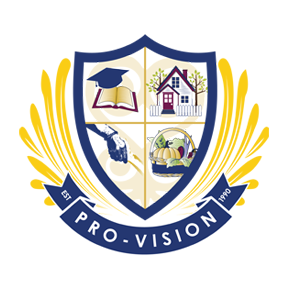The Surge of Student-Driven Encyclopedias: Changing Knowing Landscapes
In the ever-evolving realm of education, where info moves perfectly and access to expertise is only a click away, student-driven encyclopedias are becoming a dynamic tool in the learning process.

These systems not just AJ plans to attend a retreat on mindfulness. He paid a $500 nonrefundable registration fee, made a reservation at a hotel that costs $200, and budgeted $150 for gas and food. Two days before the retreat, give students with a database of info but additionally motivate them to contribute, modify, and curate material, fostering a collective and interactive understanding environment.
As instructional standards change in the direction of more participatory and inclusive models, the idea of student-driven encyclopedias personifies this makeover. These platforms equip students to come to be active individuals in understanding development, linking the space between conventional textbook learning and modern digital sources.
The Concept of Student-Driven Encyclopedias
Student-driven encyclopedias are digital platforms where students collectively gather, confirm, and disseminate info on a wide variety of subjects. Unlike conventional encyclopedias, which are commonly composed by experts, these systems leverage the joint initiatives of pupils to develop a comprehensive body of expertise.

At their core, student-driven encyclopedias are created to cultivate essential thinking, study abilities, and electronic proficiency among students. By participating in the process of web content production, students find out to navigate and evaluate info seriously, abilities that are vital in today’s information-rich culture.
Furthermore, these platforms function as a room for students to discover their passions and share their expertise. This autonomous technique to expertise production makes certain that a varied series of point of views and voices are stood for, enriching the learning experience for all individuals.
- Pupils gain hands-on experience in study and content development.
- Urges cooperation and peer interaction.
- Advertises a much deeper understanding homework solver of subject.
- Fosters inclusivity and variety in knowledge depiction.
Fundamentally, student-driven encyclopedias transform trainees from easy recipients of details into energetic contributors, instilling a feeling of ownership and duty in their educational trip.
Advantages of Student-Driven Encyclopedias
Among the major advantages of student-driven encyclopedias is the advancement of vital 21st-century skills. As pupils participate in the process of material development, they hone their important thinking, digital proficiency, and interaction abilities, all of which are critical in today’s interconnected world.
In addition, these platforms urge a collective discovering setting, where pupils can interact to validate info, discussion various perspectives, and co-edit short articles. This peer-to-peer communication not just enhances discovering results yet additionally promotes a sense of area and shared regard amongst pupils.
Moreover, student-driven encyclopedias offer a platform for showcasing pupil job. As students add to the encyclopedia, they construct a portfolio of their research and writing, which can be very useful for further academic and expert pursuits.
Challenges and Limitations

Despite the numerous benefits, student-driven encyclopedias likewise encounter particular challenges. Making sure the accuracy and dependability of info is paramount, as these systems rely upon payments from students that might not yet have expert-level understanding.
- Maintaining content high quality and precision.
- Providing ample guidance and advice.
- Guaranteeing fair gain access to and inclusivity.
To mitigate these obstacles, numerous student-driven encyclopedias execute a system of checks and equilibriums, where web content is evaluated by teachers or experts prior to publication. This makes certain that the info presented is both exact and credible, supporting the integrity of the platform.
The Future of Student-Driven Encyclopedias
As innovation remains to development and the landscape of education and learning progresses, the potential for student-driven encyclopedias is huge. These systems have the capability to not just complement conventional educational sources but likewise redefine the way understanding is obtained and shared.
In the future, we might see student-driven encyclopedias integrating more advanced technologies such as expert system and artificial intelligence to boost content curation and customization. In addition, they may broaden beyond textual details to include multimedia content, providing a much more immersive knowing experience.
Encouraging the Next Generation
Student-driven encyclopedias hold the promise of empowering the future generation of students. By placing students at the helm of expertise creation, these platforms motivate long-lasting understanding, inquisitiveness, and intellectual freedom.
Finally, as educational systems remain to innovate, student-driven encyclopedias stand as a testimony to the power of cooperation and the relevance of pupil agency in the knowing process. By accepting these systems, we unlock to a much more comprehensive, interesting, and vibrant instructional experience for all.
